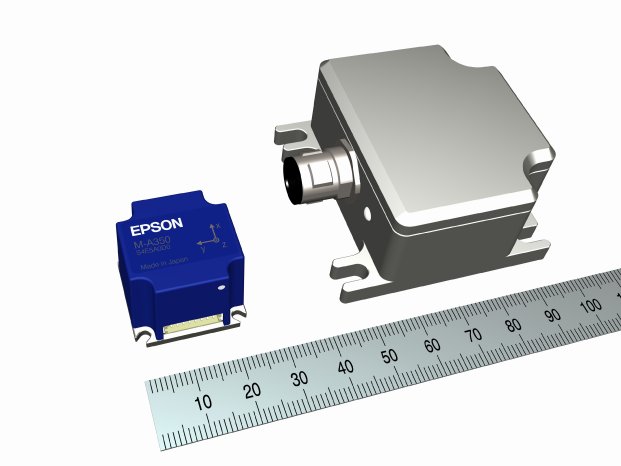Sensors are used in the construction and civil engineering industries to monitor horizontal and vertical planes in skyscrapers and other large structures, as well as to measure changes over time that occur in structures due to slight shaking and to measure structural distortion and deterioration after seismic activity. However, the high-precision inclinometers and accelerometers used to date for these measurements and sensing applications have been expensive, large, and heavy, characteristics that present significant barriers to adoption. Industry wanted the compactness, power-efficiency and low cost of monitoring systems provided by silicon MEMS sensors combined with r the same long-lasting accuracy and stability as mechanical servo sensors.
"To meet the customer needs we drew on our unique strength in QMEMS*1 fabrication technology to develop a new quartz accelerometer that is both highly accurate and stable," said Toshihiko Kano, general manager of Epson's M Project. "We combined this accelerometer with semiconductor and software technology to form high-performance inclinometers and accelerometers (three-axis sensor units) for practical applications. We will supply these inclinometers and accelerometers as built-in models and as CAN*2-compliant waterproof and dustproof models that can be used in a variety of applications."
These products make it easy to build a flexible monitoring system that will satisfy industrial performance requirements. They can also easily be used to realize multi-node and synchronous measurement systems. By using a digital interface, customers will be able to build monitoring systems that have superior anti-noise performance and long-distance measurement capability in far less time.
Epson plans to demonstrate these products at the Epson booth (Hall A4, Booth #224) at Electronica 2012, an international trade fair for electronic components, systems and applications, to be held in Munich, Germany, from November 13-16.
Epson has identified sensing as an important growth business in its long-range corporate vision. The company will thus continue to leverage its crystal-based QMEMS technology in the sensing of quantities such as time, pressure, and angular velocity, driving further advances in convergence with semiconductor and software technologies, to provide customers with a wide array of solutions, including products, modules, and systems that are easy to use and that they know they can trust.
*1:QMEMS
QMEMS is a combination of "Quartz," a crystalline material with excellent characteristics such as excellent frequency stability and high precision, and "MEMS" (micro electro mechanical system). QMEMS devices, produced via a microfabrication process on a quartz material instead of on a semiconductor material like MEMS, offer high performance in a compact package. QMEMS is a registered trademark of Seiko Epson Corporation.
*2: CAN (controller area network): A network protocol used for automotive and industrial applications
About Epson
Epson is a global imaging and innovation leader whose product lineup ranges from inkjet printers and 3LCD projectors to sensors and other microdevices. Dedicated to exceeding the vision of its customers worldwide, Epson delivers customer value based on compact, energy-saving, and high-precision technologies in markets spanning enterprise and the home to commerce and industry.
Led by the Japan-based Seiko Epson Corporation, the Epson Group comprises more than 81,000 employees in 97 companies around the world, and is proud of its ongoing contributions to the global environment and the communities in which it operates.
http://global.epson.com/


